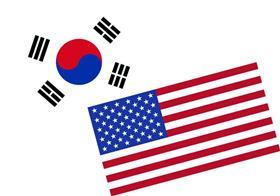
The US and South Korea have finalised the renegotiation of a 2007 Free Trade Agreement, which would provide a significant windfall to the US horticultural sector in the form of tariff reductions, provided it is ratified by the two nations.
Tariffs on certain produce would be decreased incrementally or abolished immediately under the terms of the renegotiated document.
Californian Department of Food and Agriculture secretary AG Kawamura has welcomed the agreement, with agricultural exports to Korea from the state totalling US$346m in 2009.
“South Korea is the sixth largest export destination for Californian agricultural products. A ratified trade agreement will allow greater access for California’s farmers and ranchers by lowering and eliminating various tariffs on agricultural products. We are excited about the recent agreement and encourage congress to move quickly on ratification,” he said in a press release.
According to figures from the USDA, under the renegotiated agreement, one of the big winners will be the citrus industry. Oranges would see a 20 per cent reduction from 50 per cent to 30 per cent, with tariffs reduced to zero over the space of six years on exports between 1 March and 31 August. This will be of particular interest to growers in California who provide over two-thirds of all orange exports to Korea.
Another big winner would be table grapes, which would see tariffs cut from 45 per cent to 24 per cent immediately on exports between 16 October and 30 April. This could provide an opportunity for the last two months of the Californian export deal, as shipments would commence at the beginning of October. Cherries would also benefit with an immediate 24 per cent tariff cut.
Although phytosanitary issues still need to be addressed, the current 45 per cent tariff on apples would be phased out with volume quotas starting at 9,000 tonnes and increasing over five years to 12,000 tonnes. The quota will then increase by three per cent annually until it is ultimately phased out.
Non-Asian variety pears would have tariffs phased out over 10 years, with a 20-year phase out for Asian varieties, provided phytosanitary issues are addressed.
Vegetables would see tariff removal either immediately or phased out over up to 18 years.
Shelled and in-shell almonds would have the eight per cent duty they now carry cut immediately, with pistachios also taking an immediate elimination of the current 30 per cent tariff. Shelled walnuts would have the current 30 per cent tariff removed over six years, while in-shell walnuts would have a 45 per cent tariff phased out over 15 years.






No comments yet